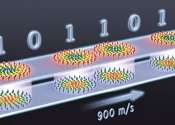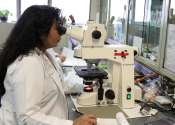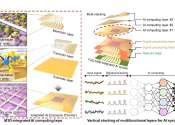Skyrmions move at record speeds: A step towards the computing of the future
An international research team led by scientists from the CNRS has discovered that the magnetic nanobubbles known as skyrmions can be moved by electrical currents, attaining record speeds up to 900 m/s.






